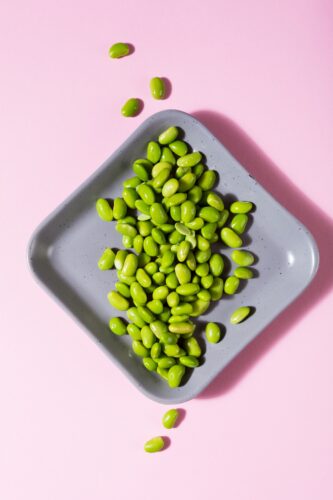Bacteria In Our Bodies
The human digestive system is home to approximately 100 trillion microorganisms. Our previous blog post discussed the intricate relationship between the human body and the microorganisms that inhabit the gastrointestinal tract. Most think of bacteria as invasive organisms that wreak havoc on our body, but there are also good bacteria that play a significant role in various physiological processes.

What Are Probiotics?
Probiotics are living bacterial organisms that contribute to the human microbiota. Probiotics are beneficial bacteria that promote and maintain gut health. Common sources of probiotics include yogurts, cheese, tempeh, kimchi, sauerkraut, and some pickled vegetables.
Why Probiotics
Studies suggest probiotics can potentially improve many functions of the digestive system and intestinal microbiota, such as producing healthy bowel movements. They also have positive effects on the immune system. Specifically for women, probiotics can defend the reproductive system against harmful species.
Get in some probiotics during your next visit to the Dining Commons! Probiotics are found in:
- Yogurt: In yogurt stations at each Dining Commons.
- Cheeses: Swiss, cheddar, provolone, parmesan, and cottage cheese. These cheeses may be found in each Dining Commons’s Salad Bar, Pasta Station, Deli Station, and Grill. They may also be found in various rotating items.
- Kimchi: It can be found at The Bowl Station at Snelling and Oishii Ramen at O-House.

What Are Prebiotics?
Prebiotics are food for the probiotic bacteria in our gut. Prebiotics are typically high-fiber foods that our gut bacteria consume to support our digestive and immune systems. Prebiotics are found in bananas, whole grains, greens, garlic, artichokes, soybeans, and onions.
Why Prebiotics
Prebiotics are important because they strengthen the immune system and help regulate bowel movements. They also lower the risk of cardiovascular disease and reduce the risk of colon cancer.
In the Dining Commons, prebiotics are found in:
- Bananas: Served every day at all the Dining Commons.
- Onions: A topping option at the Salad Bar and Grill and may be found in various rotating items.
- Garlic: Can add to your eggs at Bolton’s Buon Appetito Omelet station and may be found in various rotating items.
- Edamame: Served daily on salad bars.

Bottom Line
Maintaining a lively and beneficial ecosystem of bacteria within our bodies is essential. We can achieve this by consuming probiotics and prebiotics through our diet. Many factors can knock the human microbiome ecosystem out of place, including antibiotics and medications, ancestry, environment, and, most importantly, diet. While many of these factors are beyond our control, we can actively support healthy gut bacteria and aid digestion by incorporating probiotics and prebiotics into our meals. Although they serve different functions and come from distinct sources, including both in your weekly diet is beneficial for overall gut health.
References:
Davani-Davari D, Negahdaripour M, Karimzadeh I, Seifan M, Mohkam M, Masoumi SJ, Berenjian A, & Ghasemi Y. (2019). Prebiotics: Definition, Types, Sources, Mechanisms, and Clinical Applications. Foods, 8(3), 92. https://doi.org/10.3390/foods8030092
Ursell LK, Metcalf JL, Parfrey LW, Knight R. Defining the human microbiome. Nutr Rev. (2012);70 Suppl 1(Suppl 1):S38-44. https://doi.org/10.1111/j.1753-4887.2012.00493.x

